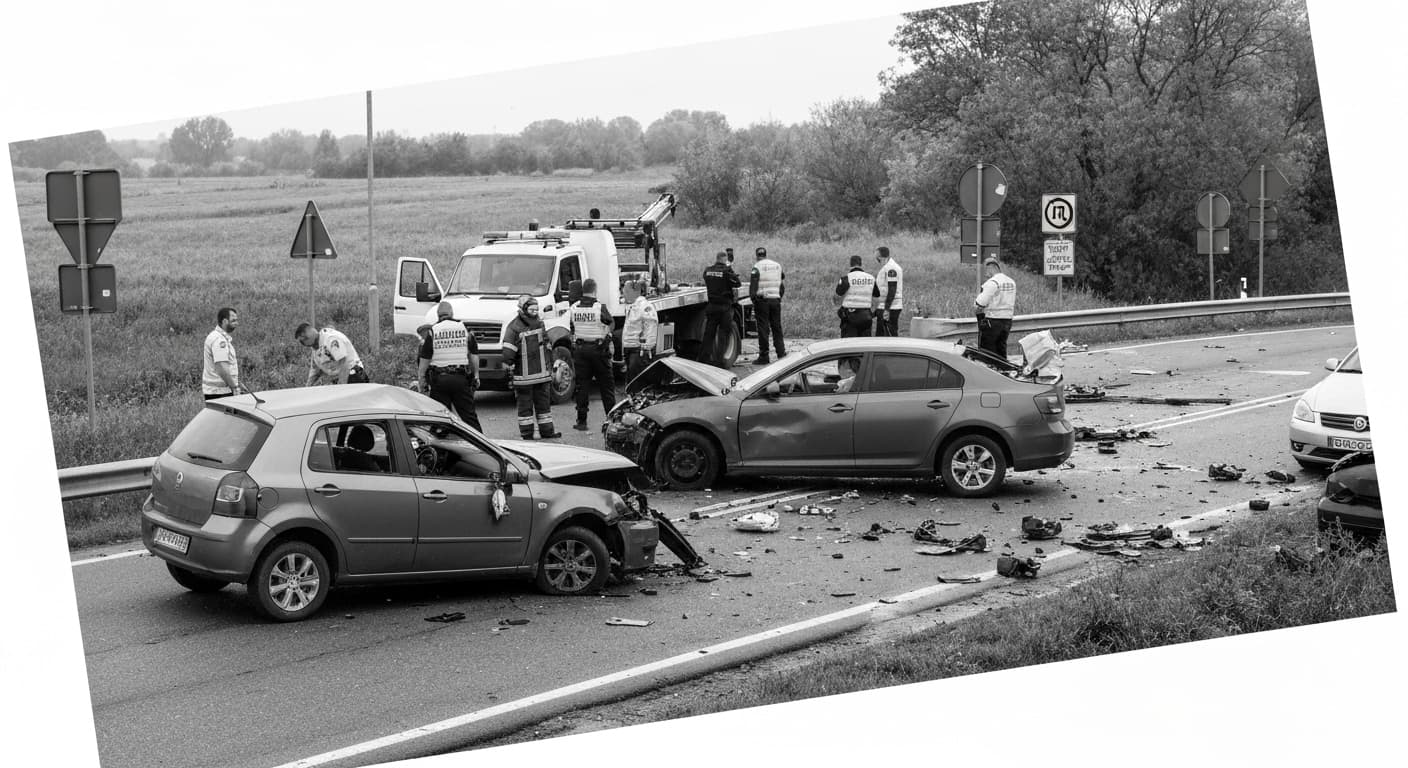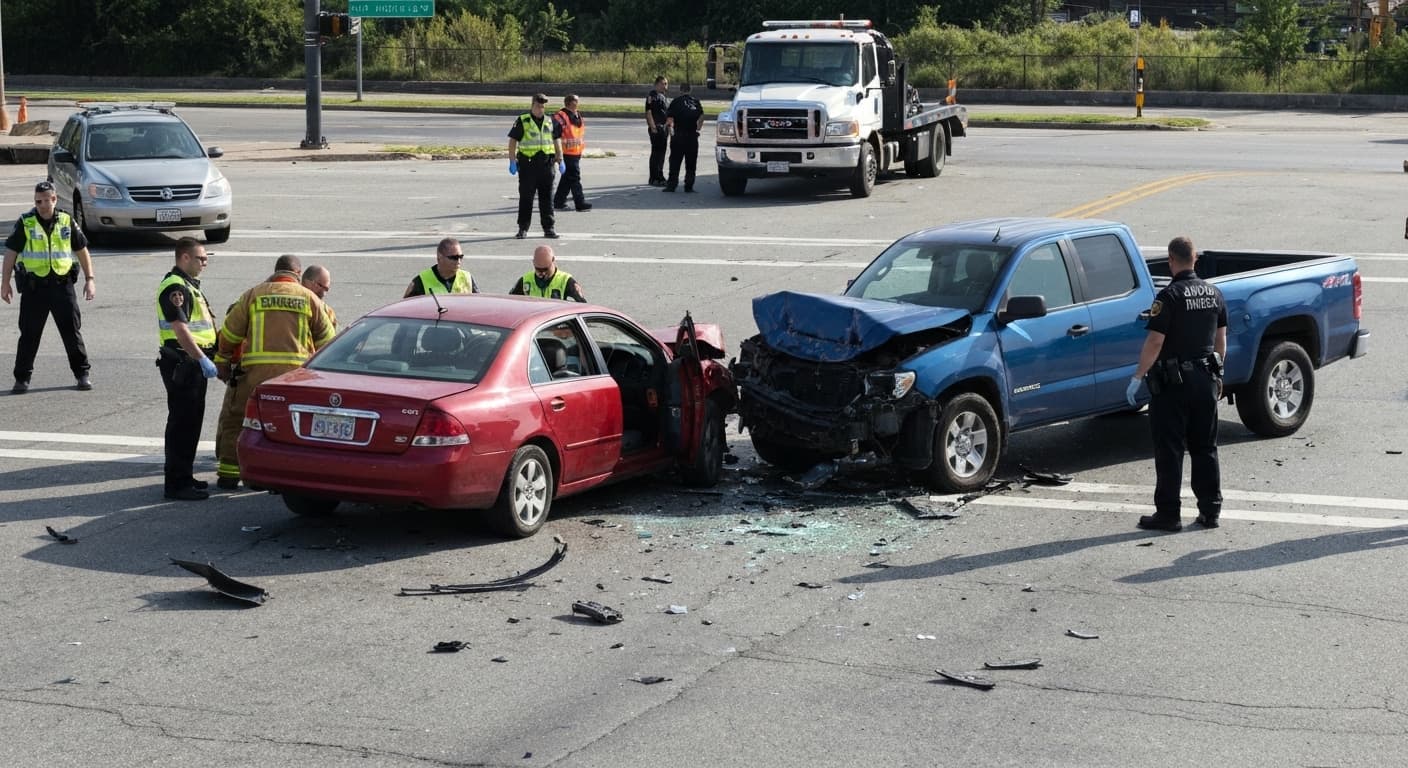
What Documents Do I Need to Prepare for a Car Accident Claim?
Learn what documents you need for a car accident claim, from medical records to financial documentation, to build a strong case.
# What Documents Do I Need to Prepare for a Car Accident Claim?
Preparing the right documents for your car accident claim is crucial for maximizing your compensation. Proper documentation supports your case and helps prove damages, liability, and the impact of your injuries.
Essential Accident Documentation
Police Report
Why It's Important:
- Official record of the accident
- Officer's fault determination
- Witness statements
- Traffic citations issued
- Objective third-party account
How to Obtain:
- Request from responding police department
- Provide accident date, time, and location
- Pay required fees (usually $10-25)
- Allow 3-10 days for processing
- Get certified copies if needed
Accident Scene Evidence
Photos and Videos:
- All vehicle damage from multiple angles
- Accident scene layout
- Traffic signs and signals
- Road conditions and weather
- Skid marks or debris
- License plates
- Injuries (if appropriate)
Written Documentation:
- Time and date of accident
- Weather and road conditions
- Traffic conditions
- Speed estimates
- Description of what happened
- Witness contact information
Medical Documentation
Emergency Treatment Records
Collect:
- Emergency room records
- Ambulance reports
- Hospital admission records
- Discharge summaries
- Emergency physician notes
- Diagnostic test results
Ongoing Medical Care
Gather:
- All doctor visit records
- Specialist consultation notes
- Physical therapy records
- Prescription records
- Medical imaging (X-rays, MRIs, CT scans)
- Laboratory test results
- Medical equipment receipts
Medical Bills and Expenses
Document:
- Hospital bills
- Doctor fees
- Specialist charges
- Physical therapy costs
- Prescription medication costs
- Medical equipment expenses
- Transportation to medical appointments
Financial Documentation
Lost Wage Records
Provide:
- Employment verification letter
- Pay stubs before and after accident
- Tax returns (previous 2-3 years)
- Employer statement of missed work
- Benefits lost (vacation, sick time)
- Bonus or commission documentation
Property Damage
Collect:
- Vehicle repair estimates
- Repair receipts and invoices
- Total loss valuations
- Rental car receipts
- Personal property damage receipts
- Diminished value assessments
Out-of-Pocket Expenses
Track:
- Medical co-pays and deductibles
- Prescription costs
- Medical equipment purchases
- Transportation costs
- Home care expenses
- Modification costs (home/vehicle)
Insurance Documentation
Your Insurance Information
Provide:
- Insurance policy declarations page
- Coverage limits and deductibles
- Claim number and adjuster contact
- Correspondence with your insurer
- Settlement offers received
Other Party's Insurance
Gather:
- Other driver's insurance information
- Policy limits (if available)
- Claim number with their insurer
- Adjuster contact information
- Correspondence received
Personal Impact Documentation
Pain and Suffering Journal
Daily Entries Should Include:
- Pain levels (1-10 scale)
- Activities you couldn't do
- Sleep disruptions
- Emotional state
- Medication effects
- Physical limitations
Life Impact Statements
Document:
- How injuries affect daily activities
- Changes in relationships
- Lost enjoyment of hobbies
- Work limitations
- Future concerns
- Family member observations
Legal and Administrative Documents
Driver Information
Collect:
- Your driver's license copy
- Other driver's license information
- Vehicle registration documents
- Proof of insurance
- Traffic citations issued
Witness Information
Gather:
- Witness contact information
- Written or recorded statements
- Their observations of the accident
- Their location during the incident
- Follow-up contact attempts
Expert Documentation
Medical Expert Reports
Obtain:
- Independent medical examinations
- Medical expert opinions
- Prognosis statements
- Future medical needs assessments
- Disability evaluations
Accident Reconstruction
May Include:
- Expert analysis reports
- Accident scene diagrams
- Speed calculations
- Impact analysis
- Causation opinions
Organization Tips
Create a Filing System
Organize by Category:
- Medical records
- Financial documents
- Insurance correspondence
- Legal documents
- Photos and evidence
Digital Copies
Best Practices:
- Scan all documents
- Create backup copies
- Organize in folders
- Share with attorney
- Keep originals safe
Timeline Documentation
Maintain:
- Chronological order
- Date stamps on everything
- Regular updates
- Progress tracking
- Milestone documentation
Common Documentation Mistakes
Don't:
- Wait to gather documents
- Lose original receipts
- Forget to document pain
- Miss medical appointments
- Ignore follow-up care
- Fail to photograph injuries
Do:
- Start collecting immediately
- Keep everything organized
- Make copies of everything
- Document daily impacts
- Follow medical advice
- Maintain detailed records
Working with Your Attorney
What to Provide
Give Your Lawyer:
- All documents you've collected
- Complete medical history
- Employment information
- Insurance details
- Contact information for all parties
Ongoing Documentation
Continue to:
- Collect new documents
- Update your attorney regularly
- Follow medical treatment
- Track new expenses
- Document ongoing impacts
Special Situations
Government Entity Claims
Additional Requirements:
- Notice of claim forms
- Specific procedural documents
- Government contact information
- Shorter deadline documentation
Commercial Vehicle Accidents
Extra Documentation:
- Commercial driver's license
- Company information
- Vehicle inspection records
- Driver logs
- Company policies
Conclusion
Proper documentation is the foundation of a successful car accident claim. Start collecting documents immediately after your accident and maintain organized records throughout your case.
The more thorough your documentation, the stronger your case and the better your chances of receiving fair compensation. Don't underestimate the importance of seemingly minor documents - they can all contribute to proving your case.
Work closely with your attorney to ensure you're collecting all necessary documentation and maintaining proper organization throughout the process.
Key Takeaway: Comprehensive documentation is essential for proving your case and maximizing your compensation.
---
Need help organizing your car accident claim documentation? Contact an experienced attorney today to ensure you're collecting all necessary evidence for your case.


